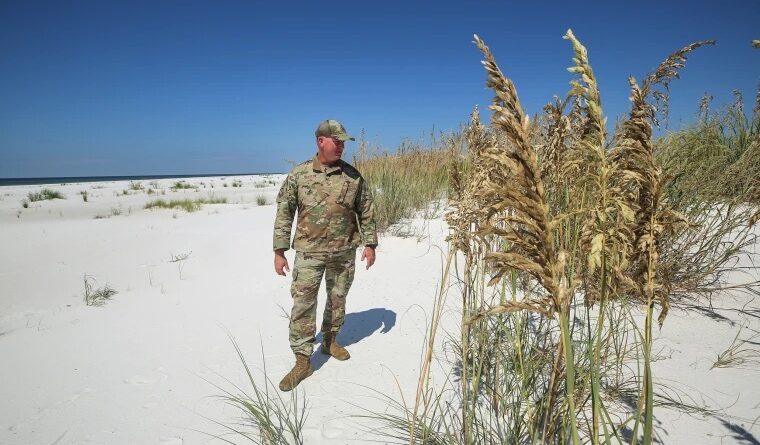Climate Resilience is a Matter of National Security
Florida isn’t just the state of sunshine, Disney, and spring break beaches. It also ranks fifth in the U.S. states with the most military personnel and serves as home to three combatant commands (U.S. Southern Command, U.S. Central Command, and U.S. Special Operations Command) along with more than 20 installations. These regions are home to some of America’s most critical national security missions and military facilities.
When you think about states which play a critical role in national security, Florida probably doesn’t come to mind. This military presence not only protects the national security of the country as a whole; it’s a powerhouse driver of Florida’s economy, contributing $96.6 billion annually. In 2022, $30.2 billion was allocated in defense spending to the state, underscoring the national importance of protecting Florida’s military infrastructure and readiness.
Yet a significant threat is putting that readiness at risk: climate change. As Florida’s climate becomes hotter and more susceptible to damaging hurricanes, rising seas, storm surge flooding, and intensifying extreme weather, all of which pose grave threats to the operational capability and asset integrity of these vital military installations. Leaving these risks unaddressed would degrade the operational capability of facilities integral to missions spanning intelligence, logistics, training, and homeland defense.
Recognizing these threats, Florida is implementing proactive measures to enhance the climate resilience of its bases, aiming to secure the long-term viability of its indispensable military assets and the personnel who serve there. In 2019, the Department of Defense sounded the alarm in a report flagging eight Florida bases at high risk from climate hazards like flooding and drought. Heeding the warning, Florida established its first statewide Chief Resilience Officer to develop strategies hardening the state against accelerating climate threats.
Today, resilience initiatives are underway across the Sunshine State to fortify communities and military installations alike. Projects are improving flood defenses, drainage systems and constructing facilities built to withstand intensifying hurricanes, storm surge and other extreme conditions. By prioritizing resilience upfront, Florida can safeguard the military readiness capabilities its bases provide the country.
The American Security Project issued a report in February 2024 on resilience measures at military facilities in Florida. The report highlighted climate resilience activities in five key regions—Cape Canaveral/Treasure Coast; Jacksonville; Pensacola/Emerald Coast; Miami/Doral/South Florida; and Tampa—home to some of the U.S.’ most critical national security missions and military facilities which must be able to sustain operations through worsening climate conditions.
The projects highlighted in the report are designed to fortify communities against climate hazards while also shoring up the state’s vital national security assets. By getting ahead of worsening hurricanes, sea level rise, and other climate risks, Florida aims to safeguard its military readiness and the critical role its bases play in defending the nation.
Investing in such infrastructure represents a vital commitment to the long-term viability of Florida’s military infrastructure and the safety of the personnel who serve there, indispensable to defending our nation and global interests.
The risks of climate change to America’s military readiness can no longer be ignored. We must confront this threat head-on through ambitious resilience initiatives in all 50 states that fortify our critical defense installations against accelerating climate impacts.
We owe it to the armed forces; it is a patriotic duty. For the military personnel standing watch over our nation and the future safety of every American community, we must treat resilience as a matter of national security demanding immediate, unwavering action and leadership. The time to future-proof our defense readiness is now, before climate change undermines the military capabilities upholding our very security and way of life.
Originally written for and published on The Invading Sea.

